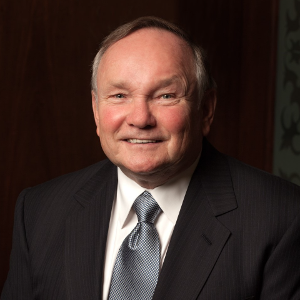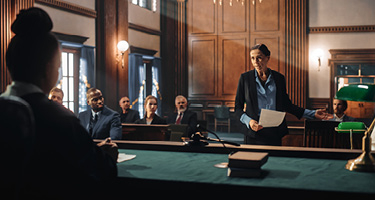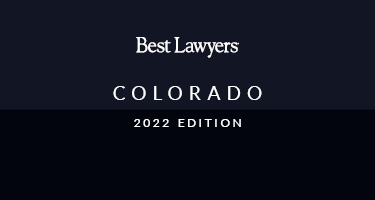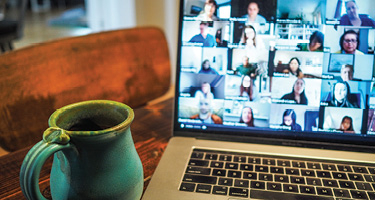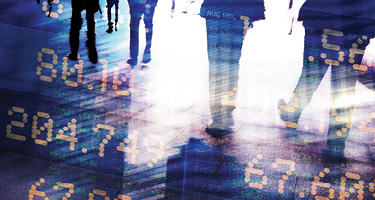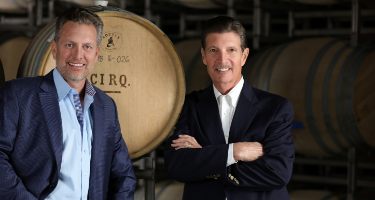In high-stakes litigation, judicial recusal—or lack thereof—can affect the public’s perception of the judiciary as unbiased and objective. This past September 14, on the eve of the bellwether opioid-litigation trial in Ohio, defendant giant retail pharmacy chains and drug distributors filed a motion to recuse the presiding federal district judge from the highly charged case. The stakes were high; just days earlier, a separate state case in Oklahoma resulted in a $572 million judgment against opioid manufacturer Johnson & Johnson.
Stakes were high as well in a recent Illinois class action, in which a state Supreme Court justice refused to recuse himself from litigation involving State Farm following a $1.2 billion verdict against the insurance giant for replacing genuine manufacturer automotive parts with aftermarket parts for millions of policyholders. The judge, Lloyd Karmeier, had accepted “dark money” contributions from State Farm during his election campaign immediately prior to his decision—yet he remained on the case and, in fact, cast the deciding vote to overturn the verdict. Protracted litigation over Judge Karmeier’s refusal to recuse himself was later settled for $250 million. (“Dark money” refers to campaign contributions funneled through nonprofit groups that are not required to list their donors. The actual source of the funds is therefore deliberately withheld from the public eye, and not revealed in campaign disclosures or to the media.)
The rules governing recusal merit closer scrutiny. Recently, the American Bar Association clarified one such rule regarding judges’ ties to lawyers, and what sorts of conduct would demand recusal. Model Code of Judicial Conduct Rule 2.11 states that impartiality can be reasonably questioned when the judge, his or her domestic partner, or a “person within the third degree of relationship of either of them,” is a party or lawyer involved in the proceedings.
“Judges need not disqualify themselves if a lawyer or party is an acquaintance, nor must they disclose acquaintanceships to the other lawyers or parties,” the seven-page ABA memo, released this past September 7, stated. “Whether judges must disqualify themselves when a party or lawyer is a friend or shares a close personal relationship with the judge—or should instead take the lesser step of disclosing the friendship or close personal relationship to the other lawyers and parties—depends on the circumstances.”
Acquaintances are typically people with whom a relationship is “coincidental or relatively superficial,” according to the ABA’s Formal Opinion 488. Generally, they might be individuals who run into each other at their children’s school functions or at local businesses, or who socialize with mutual friends. In the context of the legal community, the opinion mentions those who attend the same bar groups or who may have represented co-parties in litigation at one point. “Generally, neither the judge nor the lawyer seeks contact with the other, but they greet each other amicably and are cordial when their lives intersect,” the memo added.
In the Illinois litigation, the plaintiffs alleged that Judge Karmeier had associated with top State Farm executives outside of court. He also accepted dark money from State Farm through tort-reform organizations that served as conduits for contributions in his race, which cost millions of dollars.
The ABA’s Model Rules of Judicial Conduct do not spell out when recusal is appropriate under these circumstances, so it is left to the judge’s discretion. There is no recourse, even if the judge’s decision appears to stretch the rules or a conflict is apparent.
As many as 38 states hold elections, either partisan or non-, for judges. What’s really at stake, then, is the public’s confidence in the integrity and independence of the judiciary in the absence of election-funding transparency. What happens to such confidence when judges’ campaigns are being bankrolled by organizations that dole out money to like-minded candidates for various offices?
During the 2018 election cycle, the Center for Responsive Politics reported, shell corporations and dark-money groups that aren’t required to disclose their donors gave more than $176 million to the type of political action committees known as Super PACs. “The surge in dark-money giving came as Super PACs spent nearly $818 million in the 2018 elections,” the Center noted, “a monumental increase from the $345 million they spent in the previous midterm cycle.”
Clearly, sizable dark-money donations become an issue of greater salience when they case doubt on a judge’s ability to be objective. Those who donate large sums do so to benefit themselves in some way; it is not a selfless act. All 50 states require individual donors who make campaign contributions outside of PACs to do so openly, and the list of donors (and amounts) is made public, as well it should be. Yet Congress and the courts still allow dark money to undermine the integrity and independence of the judiciary through its shroud of secrecy.
Until legislators and judges take steps to prevent dark-money donations outright, the ABA and state bar groups should formulate specific opinions as to how such donations to judges ought to be handled. Judicial candidates themselves should consider meaningful disclosure by taking a “no dark money” pledge when running, so that even the appearance of propriety, as required by judicial rules, is upheld.
The wink-and-nod understanding of philosophic or ideological expectations must come to an end, so judges will feel compelled to disqualify themselves from court decisions that affect companies’ bottom lines. The administration of justice through the courts is where everyone is equal before the law. Dark money undermines that fundamental constitutional right when donors are unknown, and contributions are unknowable.
Robert Clifford is the founder of Clifford Law Offices in Chicago, an internationally recognized plaintiffs’ personal injury firm. Bob has represented those injured or killed in nearly every major commercial airline crash in the U.S. in the last four decades. He was appointed lead counsel in the Ethiopian Airlines Flight 302 litigation in the Northern District of Illinois. He has been listed in Best Lawyers since its inception.
photo: ISTOCK.COM/JACOBLUND

